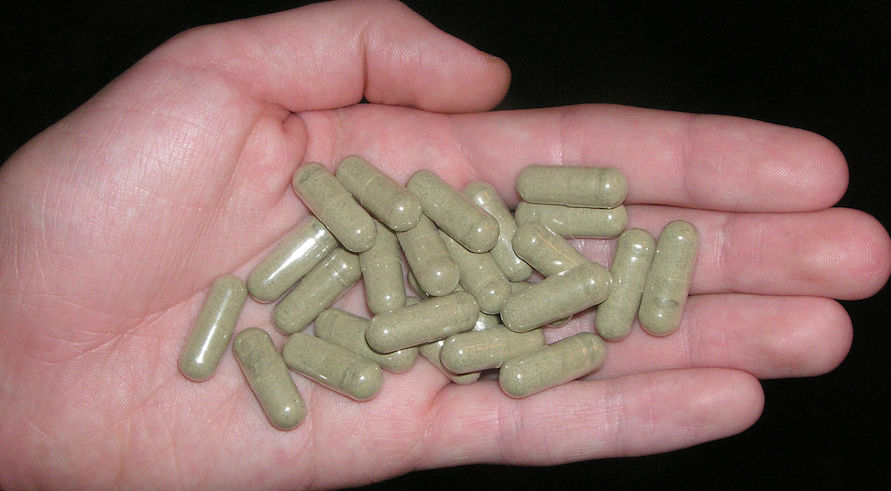The U.S. Food and Drug Administration says a popular alternative to opiates poses its own risks — including addiction and even death.
On Tuesday, the FDA issued a warning against using kratom, an herb from Southeast Asia known for its ability to bind to the same opiate receptors as morphine.
“At a time when we have hit a critical point in the opioid epidemic,” the FDA statement said in a statement. “The increasing use of kratom as an alternative or adjunct to opioid use is extremely concerning.”
Kratom is often touted as an up-and-coming alternative to painkillers and as a way to treat opiate withdrawals, but using it recreationally has resulted in 36 deaths and increasing calls to poison control centers.
“While we remain open to the potential medicinal uses of kratom, those uses must be backed by sound science and weighed appropriately against the potential for abuse,” the FDA continued in its warning.
Side effects of kratom
Users of kratom can experience withdrawal symptoms, along with seizures and liver damage. These side effects — and the threat of death — led the U.S. Drug Enforcement Agency to classify kratom as a Schedule I drug, meaning it can’t be used in medical research. The DEA later put the decision on hold, but the FDA’s warning means that might change soon.
Quality is also a concern, according to FDA, since many of the shipments come from overseas with potentially dangerous chemicals added.
“Patients addicted to opioids are using kratom without dependable instructions for use and more importantly, without consultation with a licensed health care provider about the product’s dangers, potential side effects or interactions with other drugs,” FDA Commissioner Scott Gottlieb wrote in the warning.
However, the American Kratom Association said the FDA’s report contained “numerous unsubstantiated and inaccurate statements” — and that kratom is as dangerous as other stimulant, but legal, substances.
“Although the primary alkaloids of kratom, MG and 7-OH-MG, may demonstrate some characteristics considered for controlled substance scheduling, as do many other products including caffeine, nicotine, some antihistamines, and alcohol, despite decades of widespread consumption, there does not appear to be a public health risk that would warrant their scheduling,” the AKA wrote.
The FDA plans to prevent new shipments of kratom from entering the United States — and hundreds of packages have already been stopped before reaching the country. Changing that, the agency says, will require kratom companies to prove its effectivness through clinical testing and research.
But the AKA says the evidence is already there — and the FDA is willfully ignoring it.
“The substantial gap between the publicly available evidence showing the safety of kratom, and the secretive and unsubstantiated conclusions of the FDA staff are, on their face, irreconcilable and arbitrary,” the organization wrote. “This transparent bias raises serious and legitimate questions about the validity of [the FDA’s] data.”



















